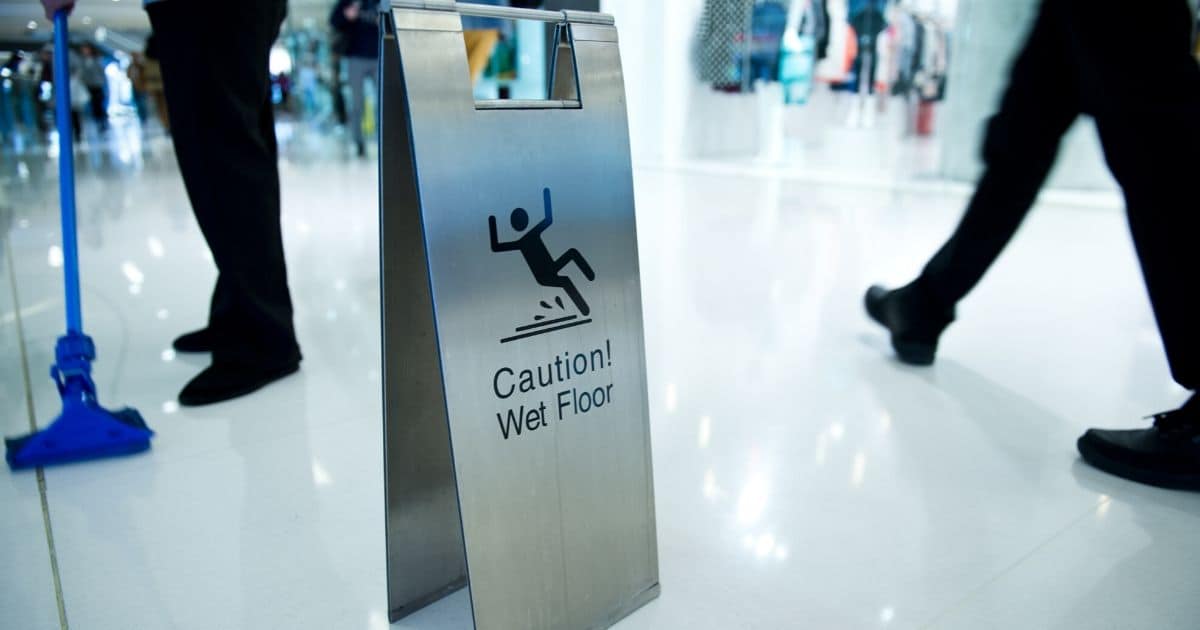What to Do After a Slip/Trip and Fall
Getting hurt in a slip and fall is not something that you plan for. When the unexpected happens, you may be scared and confused. While you want to do everything as right as possible after a slip and fall, you may not even know where to begin.
What you do after a slip and fall can impact your ability to get a fair recovery for your losses. Understanding what to do after a slip and fall can help you take measures to protect yourself and your ability to recover.
Here is what to do after a slip/trip and fall accident.
1. Seek Medical Attention
Not only is medical attention critical for your safety, but it is also the first step in building your case. When you are hurt in a slip and fall, the first thing that you need to do is document your injuries. Visiting a doctor immediately after your slip and fall is the most important thing you can do to create an expert record of your injuries.
Seeking medical attention quickly after a slip and fall also proves the timing of your injuries. It is common for the defense to try to dismiss your injuries, saying that you must have gotten them on another occasion. Going to the doctor right away prevents the other side from having any chance to say that you got your injuries in another way.
The full extent of your injuries may not be immediately apparent to you after a slip and fall. If you have head trauma, you may not be aware of it. There are a variety of injuries that might be hidden to you in the aftermath of a fall. A medical expert knows what to look for. They can make sure that you have identified all your injuries. Not only is a full accounting of your injuries critical for your recovery, but it is also essential to build a complete case for a fair recovery.
2. Inspect the Scene
What caused you to fall? Did a store have a display where someone could easily trip on it? Was there water on the floor? Did the store let too many people in to shop at once for a special event?
The best time to try and pin down the cause of your slip and fall is immediately after it occurs. Look around you. If you can pinpoint the cause of your fall, you can work backward to determine what the
store owners and employees might have done differently to prevent you from falling.
3. Take Photographs and videos
While the jury can listen to what witnesses have to say and visualize the scene, it is more powerful if the jury can look at photos. Even if you are not sure what you are taking a picture of, take pictures and videos
of the scene.
Your smartphone is good enough. Take photos and videos of the floor, the area around you, and even the area surrounding the scene. Your attorney can help you determine what is most important later.
Photos can be critical to show the jury that your version of events is accurate.
4. Identify Witnesses
Witnesses are critical to verify your version of events. If your slip and fall happens at a business, other customers might be your best witnesses. It is important to get their contact information so that you can
call them to testify on your behalf. Approach witnesses and ask for their name, phone number, address, and email address. You can even ask for a brief explanation of what they saw.
When you work with an attorney, they will follow up with witnesses quickly. They will ask them for a detailed statement in writing. If there are no third-party witnesses, you may still have a strong claim for
recovery. However, having witnesses in your corner can prevent the defense from denying your version of events.
5. Make Official Reports
A business might want you to make an accident report for their records. Go ahead and make the statement. Do not embellish, but make sure you include all vital information.
Making an official report can be critical for the timing of your claim. Having the complaint on file can stop the other side from claiming that you did not take your accident seriously.
6. Write Things Down
When in doubt, write it down. As soon as you can, sit down and write out a narrative of precisely what happened. Include every detail, even the small ones.
Your memory can fade quickly. What is obvious today might be hard to remember tomorrow. Keep track of your injuries, pain, and symptoms. Your attorney can help you put it all together to bring your claim.
7. Work with An Attorney As Soon As Possible
When you work with an experienced attorney, they can handle the negotiations with the other side. A lawyer knows when to offer information and when to hold the cards close to their vest. Your attorney has years of experience handling hundreds of slip/trip and fall cases. They know what to do after a slip/trip and fall because they have been there before. They can handle the tense negotiations with the other side.
At Attorneys For All, we are helping injured people get the compensation they deserve. Feel free to call us 24/7 at (281) 475-4535 or fill out a consultation form here to start the process.


